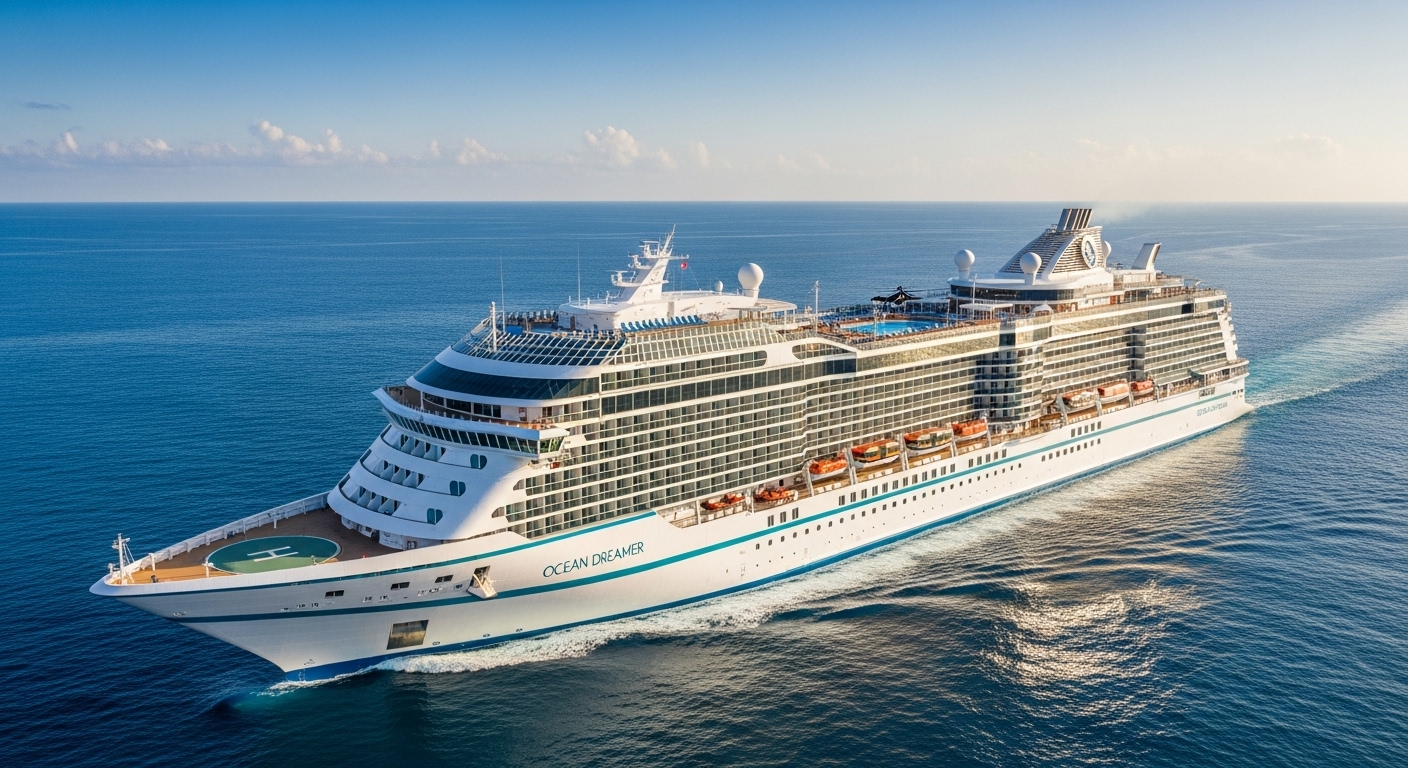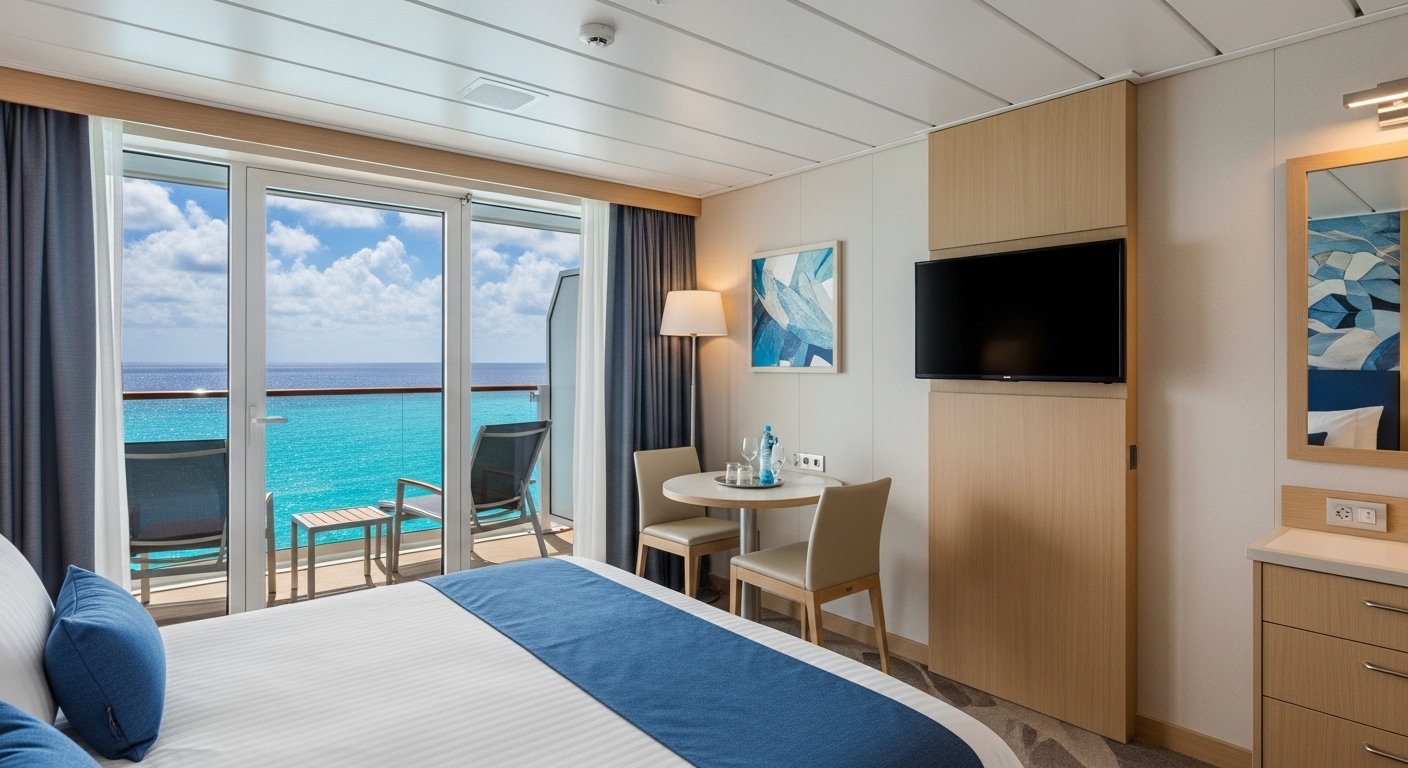
|
Live a Life at Sea? We Wrote the Book.Our definitive guide shows you how. All the ins and outs of residential cruising in one place. |
Is a Residential Cruise Ship Cabin Right for You?

by Chris and Michael from ChartingOurCourse.com
The dream of waking up in a new country every week is compelling, and for a growing number of people, residential cruising is making that dream a reality. But before you sell your house and pack your bags, it's crucial to move past the romantic vision and ask some serious, practical questions. According to us, Chris and Michael, based on our firsthand experiences, this is a significant life decision that requires careful thought and planning. In our YouTube video, we dove deep into the financial questions you should ask before buying a cabin, and this post will expand on those points to give you a comprehensive guide.
Can You Truly Afford This Lifestyle?
This is the most critical question. It’s not just about the sticker price of the cabin; it’s about the total financial picture. As we mentioned in our video, you need to consider both the technical and practical aspects of affordability within your overall financial plan.
- Initial Purchase Price: The cost of a cabin, or "Villa," can vary dramatically based on size, location on the ship, and amenities. Companies like Villa Vie Residences list their prices on their website, but this is just the beginning.
- Ongoing Monthly Fees: This is a major factor many people overlook. If you purchase a cabin, you will have monthly fees for the life of your contract (often around 15 years). These fees cover essentials like meals, travel, port fees, and basic services, but over the long term, they can exceed the initial purchase price.
- Additional Costs: Your monthly fees won't cover everything. Budget for specialty drinks, salon services, medical visits, and, most significantly, your expenses in port. These can add up quickly.
- Inflation: While some contracts, like Villa Vie's for purchasers, may currently exempt monthly fees from inflation, this isn't a guarantee across the industry or for future contracts. It's wise to plan for rising costs.
What is the Nature of Your "Ownership"?
It's vital to understand that buying a cabin on a ship is not the same as buying traditional real estate. You are typically purchasing the right to use a cabin for a specified period, often 15 years, for the operational life of that specific ship. This is a key distinction that has financial and lifestyle implications. What is your plan for when that term is up?

What Is Your Exit Strategy?
Life is unpredictable. A health issue, family emergency, or simply a change of heart could mean you need to leave the ship. Before you buy, you must have a clear exit strategy.
- Buyback Programs: Does the company offer a buyback option? Understand the terms and percentages, which often vary based on how long you've owned the cabin.
- Resale Market: Can you sell your cabin to a private buyer? If so, be aware that, like any market, the value could go up or down.
- Renting: If you plan to be off the ship for extended periods, renting out your cabin can be a great way to offset your monthly fees. Check the company's policy on this.
Are You Prepared for the Lifestyle?
Beyond the finances, you need to be honest with yourself about whether full-time life at sea is a good fit.
- Healthcare: The onboard medical center is for basic care and emergencies. You will need a robust health insurance plan from your home country and likely supplemental travel insurance that covers medical evacuations.
- Contingency Plans: What will you do if the ship has an unexpected mechanical issue or your own health requires you to be on land for an extended period? We strongly advise against selling your primary home to fund this adventure; you need a solid backup plan.
- Community Living: You’ll be living in close quarters with the same group of people for a long time. Is this something that energizes you or drains you?
Top 5 Questions to Ask Yourself Before Buying
To make it simple, here is a listicle of the most important questions:
- Have I consulted a financial advisor? Get an expert, impartial opinion on whether this fits into your long-term financial goals.
- What is my "Plan B"? If you need to leave the ship for any reason, where will you go and how will you support yourself?
- Am I prepared for a startup venture? Many residential cruise companies are relatively new. This carries inherent risks compared to established corporations.
- Is this a better use of my resources than other options? Consider what else you could do with the money, time, and energy required for this lifestyle.
- Have I done my due diligence on healthcare? This is one of the most critical, and often overlooked, aspects of planning for life at sea.
Living on a residential cruise ship can be an incredible adventure, but it's a decision that requires more than just a sense of wanderlust. It demands rigorous financial planning and honest self-reflection.
For more discussions on the costs of residential cruising, be sure to check out other posts on our blog: What Does Residential Cruising Really Cost?
Sources:
- "What Are the Costs of Living on a Cruise Ship as a Retiree?" - SmartAsset.com
- "How Much It Costs to Live on a Cruise Ship For a Year" - Cruzely.com
- "Financial Planning: What It Is and How to Make a Plan" - Investopedia
- "The ultimate guide to choosing a cruise ship cabin" - The Points Guy